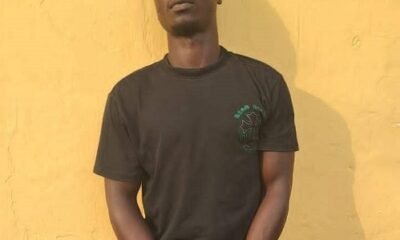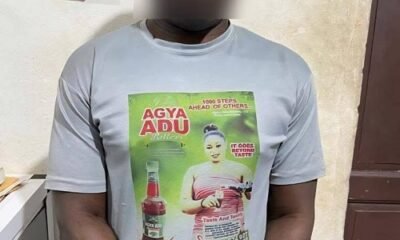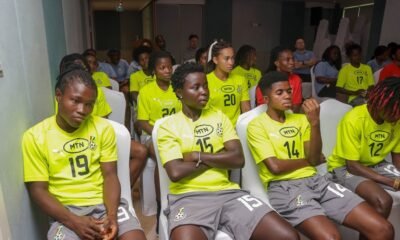News
Step up efforts to address Africa’s health, social challenges —First Lady

Ghana’s First Lady, Mrs Lordina Mahama, has urged fellow First Ladies to step up efforts in addressing Africa’s health and social challenges through collaboration, compassion, and innovation.
She said this at the 2025 Merck Foundation Africa First Ladies Initiative (MFFLI) Platform in Dubai on Wednesday.
According to her, African leaders needed to combine passion with expertise and forge strong public-private partnerships to build healthier and more inclusive societies across the continent.
“Africa must aspire to greatness by uniting public and private efforts, combining passion with expertise, and ensuring that every life, no matter how remote or marginalised, can flourish,” she emphasised.
Mrs Mahama highlighted the positive impact of the Merck Foundation Talent Programme in Ghana, which has empowered 110 young people in the creative sector including music, ICT, filmmaking, and fashion.
group photograph
flanked by the Ghanaian team
plesantries with one of the first lady
CEO of Merck Foundation
Senator Dr Rasha Kelej
She noted that such initiatives help the youth discover their potential and pursue excellence.
Expressing deep appreciation to the Merck Foundation, she commended its 30 years of support, describing it as a legacy of empowering communities to “heal, dream, and rise.”
She pledged continued collaboration through the Lordina Foundation in order to improve healthcare, promote education, and combat stigma in Ghana. “Our partnership with you will deliver a lot to the benefit of our people,” she affirmed.
Joined by 16 other African First Ladies, Mrs Mahama praised the Foundation’s efforts in transforming public health, advancing girls’ education, and strengthening media across the continent. “We must raise our voices and break the silence so that every woman recognises her worth and every child grows in dignity and health,” she urged.
The Merck Foundation CEO, Senator Rasha Kelej, shared that over 2,270 scholarships had been awarded to doctors from 52 countries in 44 underserved specialties.
These include oncology, fertility, diabetes, hypertension, internal medicine, reproductive health, pediatric emergency care, critical care, rheumatology, urology, psychiatry, ophthalmology, trauma and orthopedics, dermatology and palliative care, among others.
ACCORDING to Senator Kelej, many of the recipients have become the first specialists in their countries, serving patients who previously had no access to such expertise.
Additionally, about 1,000 girls have benefited from scholarships across 17 countries in partnership with African First Ladies.
Prof. Dr. Frank Stangenberg-Haverkamp, Chairman of the Merck Foundation Board of Trustees, cited a World Health Organisation (WHO) report showing Africa’s 24 per cent of the global disease burden but has only 2.91 healthcare workers per 1,000 people.
He noted that Merck Foundation’s programmes have helped close the gap, particularly in critical areas such as oncology and fertility care, where many countries previously had no specialists.
By Esinam Jemima Kuatsinu
News
Man sentenced to 25 years for robbery at Manso Akwasiso

A 30-year-old man has been sentenced to 25 years imprisonment with hard labour by the Bekwai Circuit Court for his role in a 2022 robbery at a mining site at Manso Akwasiso in the Ashanti South Region.
The convict, Dominic Ofori, also known as Fanta, was arrested on 16th February 2026 after years on the run. He pleaded guilty before the Bekwai Circuit Court to robbery contrary to Section 149 of the Criminal Offences Act, 1960 Act 29, and was accordingly sentenced to 25 years imprisonment with hard labour.
On March 20, 2022, the Manso Adubia District Police received intelligence that a group of armed men from Manso Abodom were planning to attack a mining site at Manso Akwasiso to rob the owner of gold concentrate. Acting on the information, police mounted a coordinated operation and laid an ambush at the site.
At about 5:30 pm the same day, four-armed men arrived at the site, fired indiscriminately, and robbed the miners of their gold concentrate. The police team on surveillance intervened, resulting in an exchange of gunfire.
Three of the suspects, Abu Abubakar, Musah Latif, and Gideon Takyi, sustained gunshot wounds and were pronounced dead on arrival at St Martins Catholic Hospital at Agroyesum. Dominic Ofori escaped at the time but was later arrested and put before the court.
The Ashanti South Regional Police Command has assured the public of its continued commitment to combating violent crimes and bringing offenders to justice.
News
Ashanti police arrest man for publishing false news on TikTok

The Ashanti Regional Police Command has arrested 45-year-old Isaac Boafo, also known as “Duabo King,” for allegedly publishing false news intended to cause fear and panic.
Police said the arrest follows a viral TikTok video in which Boafo claimed that four officers at the Central Police Station in Kumasi engaged in inappropriate conduct with commercial sex workers during night patrols in Asafo.
Officers from the Police Intelligence Directorate (Ashanti Region) apprehended Boafo after receiving intelligence about the video.
During questioning, he admitted to creating the video to attract views and engagement online, and acknowledged that he could not prove the allegations.
Boafo also admitted making comments about the President of the Republic for content purposes and could not defend those statements.
He has been formally charged and is in detention as investigations continue.
The Ashanti Regional Police have warned the public against publishing or sharing false information on social media, noting that such acts can cause fear, panic, and damage reputations.
They said anyone found engaging in similar conduct will face legal action.
By: Jacob Aggrey














